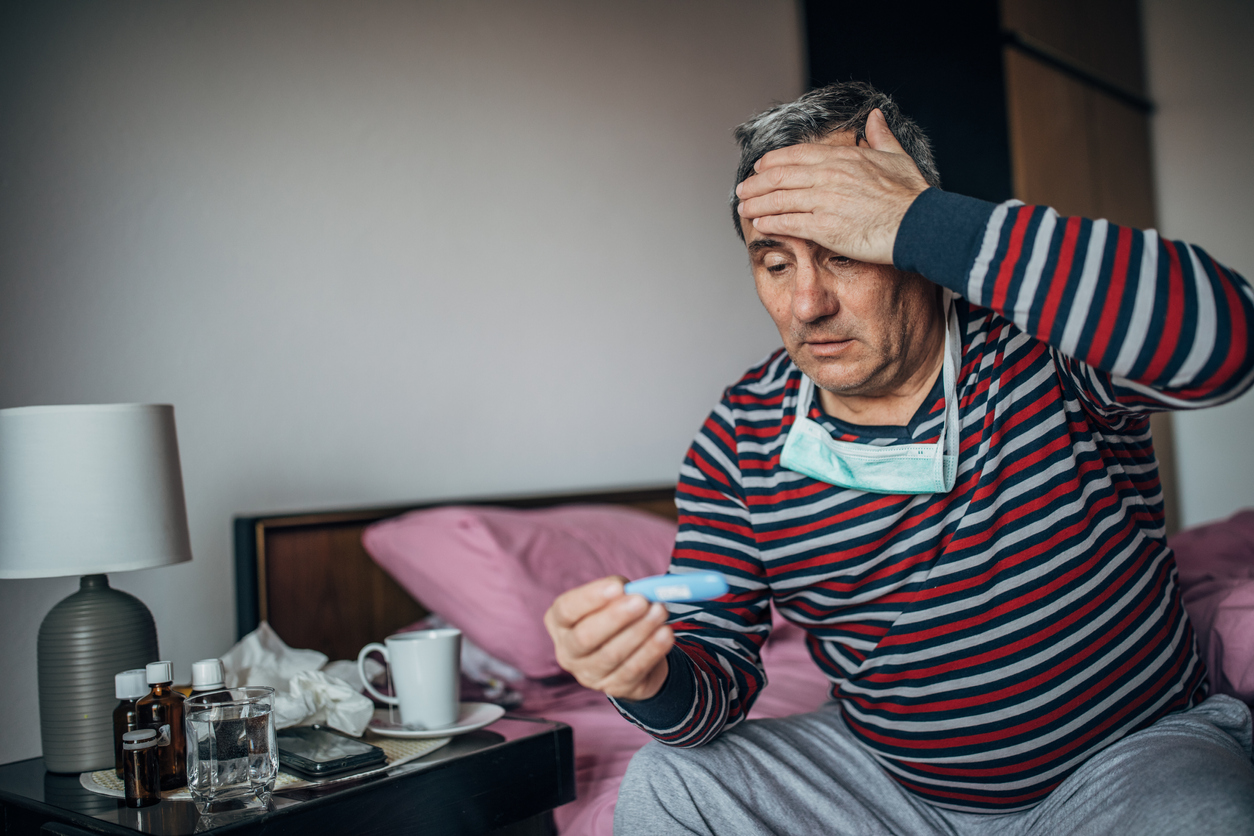During a Feb. 21 appearance on NBC News’ Meet The Press, host Chuck Todd asked Fauci: “You and I have had conversations about the first dose versus the second dose a couple of times now. We’ve gotten another study out of Pfizer … hearing more about the first dose, particularly for folks that have had COVID. Any of these new studies giving you any sense of… of where we would change our vaccine distribution schedule?” The chief medical adviser to President Joe Biden explained to Todd that there are two different situations to consider. “There’s two very different scenarios that you just painted. One is if you’ve just been infected and you get vaccinated, what about one dose? The other is if you’ve not been infected and you get one dose of Pfizer, can you get away with one dose and prolong the second dose?” Fauci said he “would still maintain” that there are too many unknowns in delaying the second shot for people who haven’t had COVID. “We know from studies that we did … that when you give a boost, you increase the power or the level of the antibodies by at least tenfold,” he said, referring to the second shot. “So you’re talking about a very, very big increase. We don’t know what the durability of a single dose is. And it really is risky. Risky for lack of protection, and risky to engender, perhaps, some variants.” By that, Fauci meant that putting off second doses or not seeking them at all could allow the virus to mutate further, as he previously explained during a White House press briefing last week. It’s a concern the infectious disease expert has expressed before. “The other theoretical issue that could be problematic with regard to only a single dose, that if you get a sub-optimum response, the way viruses respond to pressure, you could actually be inadvertently selecting for more mutants,” he said at a Feb. 8 briefing. And for more on what you can do post-shot, check out Dr. Fauci Says It’s Safe for You to Do This Once You’re Vaccinated. Fauci, however, suggested that recent research suggests that for those who have been through the illness and recovered, things may play out differently. The latest study, which has not yet been peer reviewed, that Todd seemed to be referring to comes from the Vaccine and Infectious Disease Division at the Fred Hutchinson Cancer Research Center in Seattle, Washington. The researchers analyzed blood samples from people who had COVID-19 and later received a single dose of either the Pfizer or Moderna vaccine. According to their findings, one dose amplified the amount of antibodies in their blood by a thousandfold, which lead author Andrew T. McGuire, PhD, referred to as “a massive, massive boost” in an interview with The New York Times. The article adds that “the antibodies seemed to perform better than those in people who had not had COVID and had received two doses of a vaccine”—which is why, Fauci says, the recommendations could change.ae0fcc31ae342fd3a1346ebb1f342fcb “With regard to following infection, that’s a different story because the data looked really quite impressive that if you’ve been infected and then you get a single dose, the boost that you get with that single dose is really enormous,” he told Todd. “So we’re looking very carefully about that, and that is one thing that you might want to consider but we really want to look carefully at the data first.” And for more COVID news sent directly to your inbox, sign up for our daily newsletter. In a study out of the Icahn School of Medicine at Mount Sinai in New York City, which has not yet been peer reviewed, researchers found that people who had previously been infected with COVID-19 reported higher rates of side effects like fatigue, headache, chills, fever, and muscle and joint pain after the first shot than those who hadn’t combatted the virus. Similar to the other study, these researchers also found that survivors had far higher antibody levels after both doses of the vaccine, indicating a stronger immune response. As a result of these findings, study author Florian Krammer, PhD, a virologist at Mount Sinai, told The New York Times, “I think one vaccination should be sufficient.” And for the only side effects that hint at trouble, check out If You Have These Vaccine Side Effects, Don’t Get Another Shot, CDC Says. Todd asked Fauci about how this strategy might work in practice, and how a vaccinator would know that a patient had been previously infected. “Would someone have to come in and show proof that they’ve had COVID or would they be tested there for antibodies?” Fauci confirmed that logistics would need to be ironed out and reiterated that while this course of action looked like a promising way to speed up the delivery of vaccinations, it was not yet official policy. “That’s the reason why I held back in saying ‘yes, let’s recommend that,’” Fauci said. “The obvious one you think of is the documentation that if you do an antibody test and it’s very clear that this person has been infected, then you could be reasonably comfortable that you’re dealing with someone who is post-infection. But I would reserve any kind of decisions about that until we very carefully looked at the data.” So for now, stick with both doses of the vaccine, but watch for updates—if you’ve been unlucky enough to have had COVID, there may be at least some good news ahead. And for more COVID news you need to know, check out This Vitamin Won’t Protect You From Severe COVID, New Study Finds.
